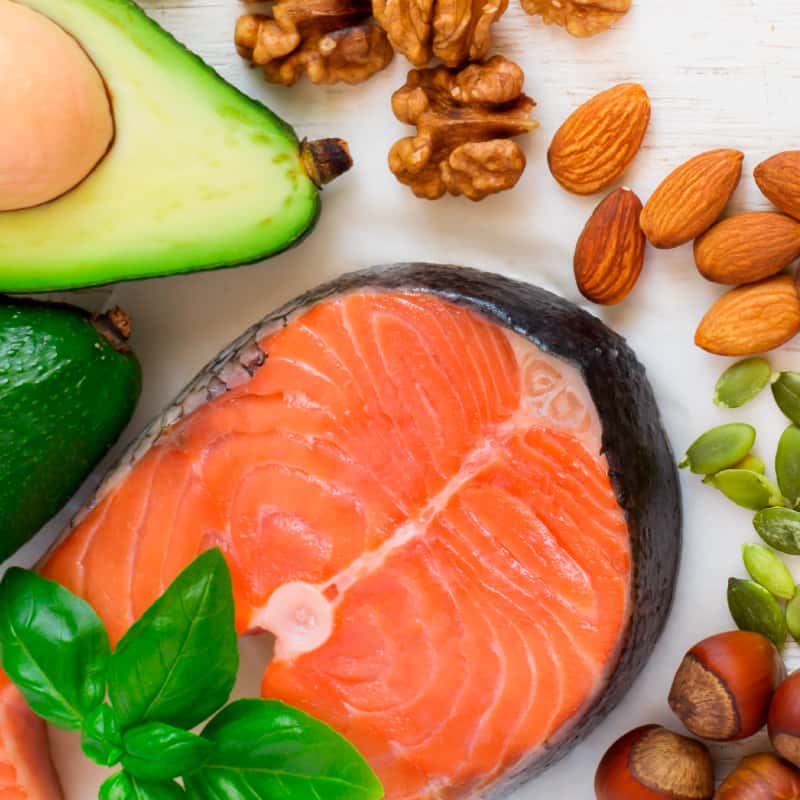This Dr. Axe content is medically reviewed or fact checked to ensure factually accurate information.
With strict editorial sourcing guidelines, we only link to academic research institutions, reputable media sites and, when research is available, medically peer-reviewed studies. Note that the numbers in parentheses (1, 2, etc.) are clickable links to these studies.
The information in our articles is NOT intended to replace a one-on-one relationship with a qualified health care professional and is not intended as medical advice.
This article is based on scientific evidence, written by experts and fact checked by our trained editorial staff. Note that the numbers in parentheses (1, 2, etc.) are clickable links to medically peer-reviewed studies.
Our team includes licensed nutritionists and dietitians, certified health education specialists, as well as certified strength and conditioning specialists, personal trainers and corrective exercise specialists. Our team aims to be not only thorough with its research, but also objective and unbiased.
The information in our articles is NOT intended to replace a one-on-one relationship with a qualified health care professional and is not intended as medical advice.
Is Turkey Bacon Healthy? Pros & Cons + How to Use
April 2, 2024

If you’re looking for that well-known salty, crispy bite of bacon in a sandwich or salad but know of the many downsides of consuming processed meats, you’ve probably wondered about turkey bacon as an alternative.
Is it healthy, and with so many product options out there, which ones are best?
While bacon made from turkey is the healthier option, it wouldn’t be included on a list of healthy foods. It’s still considered processed and when consumed as an alternative to conventional bacon should only be eaten in moderation.
Keep reading to find out why.
What Is Turkey Bacon?
Turkey bacon is made with minced and chopped turkey, plus preservatives and seasoning that makes it taste like conventional bacon. It’s formed into strips and cooked just like pork bacon.
Although it’s made from turkey, a food that’s considered healthy on its own, to become bacon it has to be processed and made with preservatives that are potentially harmful, such as nitrates. Thus, the potential health benefits of turkey are pretty much lost once it’s made into a bacon product.
Not all turkey-based bacons are alike, however, and there are better, healthier options out there.
Nutrition Facts
One ounce (about two thick slices or 28.35 oz.) of turkey bacon contains:
- Calories: 104
- Total Carbohydrates: 1.2 g
- Fiber: 0 g
- Sugar: 1.2 g
- Total Fat: 7.3 g
- Saturated Fat: 2 g
- Polyunsaturated Fat: 2 g
- Monounsaturated Fat: 2.7 g
- Trans Fat: 0 g
- Protein: 8.4 g
- Cholesterol: 43.4 mg
- Sodium: 573 mg (25% DV*)
- Selenium: 8.1 mcg (15% DV)
- Vitamin B6: 0.106 mg (6% DV)
*Daily Value: Percentages are based on a diet of 2,000 calories a day.
Bacon strips made of turkey also contains small amounts of B vitamins but not enough to consider it a good source that provides nutritional value. The one major difference between bacon made out of pork vs. turkey is that turkey meat is leaner and therefore contains less calories and fat. Both do contain almost the same amount of sodium, protein and carbohydrates.
Because of its high amounts of sodium, we recommend that you go with a low-sodium turkey bacon.
Benefits
If you’re going to eat turkey bacon, choose the healthiest version possible. Go for a nitrate-free, uncured product that indicates there’s no sugar added and it’s made by a reputable company.
Certified organic products are always your best option because they ensure that the food isn’t made with synthetic preservatives.
When you choose the best turkey bacon product on the market, these are the potential health benefits:
1. Contains Less Calories and Saturated Fat
It’s true that turkey-based bacon contains less calories (30 calories vs. 43) and saturated fat (0.6 grams vs. 1.1 grams) than conventional bacon, so if you’re comparing the two, bacon made from turkey is the healthier option.
One slice of turkey bacon has about 30 calories, so the calorie count can still add up if you add two to three slices to a sandwich or salad. Keep in mind that although it’s the better option, you should still consume it in moderation.
2. High in Protein
One serving of turkey bacon is around 8 grams of protein. If you purchase turkey bacon from turkey high only, it can be even higher in protein. As such, it qualifies as a high-protein food.
Increasing your protein intake will boost muscle mass, while also supporting your tendon, ligaments and other body tissues. Research suggests that eating good-quality meat also supports muscle recovery and promotes muscle synthesis.
3. Has Similar Taste and Texture to Bacon
For people who don’t eat pork, bacon made of turkey is a good option because it has a similar taste and texture. You’ll still that get salty, smoky flavor that can be used to make a BLT, Cobb salad and more.
If you avoid pork for religious reasons, a sensitivity or because you’re looking for healthier options, turkey bacon is a good alternative.
Risks and Side Effects
Any form of bacon or processed meat is relatively high in sodium, so make sure you don’t overdo it with salt consumption. Research shows that reducing your daily sodium intake is associated with a lower risk of cardiovascular disease and mortality.
If you eat bacon, add an extra glass of water, and pair it with foods high in potassium, such as avocado.
Keep in mind that eating processed meats has been linked to health issues, including a potential higher risk of cancer, heart disease and obesity. A systemic review and meta-analysis found that eating processed foods was linked to an increased risk of cardiovascular, depression and all-cause mortality.
If you want to follow the healthiest diet possible, then avoid or severely limit processed meat consumption.
Although bacon made with turkey is a better option than conventional bacon because it’s lower in calories and fats, it does still contain saturated fats. While there are some healthier food options that contain saturated fat (like coconut oil, ghee and dark chocolate), bacon wouldn’t be considered a good option because it lacks nutritional value.
Like most super-tasty foods, turkey bacon can be enjoyed in moderation, here and there to add flavor to recipes or as the main attraction, but it should not be a staple in your diet. You’re much better off eating a slice of freshly roasted turkey, which can be added to salads, sandwiches, soups and more.
How to Cook
Like the conventional option, bacon made with turkey bits is typically pan-fried, baked or microwaved until cooked through. You can prepare it in the same way as regular bacon, cooking it until it’s golden and crispy.
Here are some healthy recipes to try out:
Conclusion
- Turkey bacon is made with minced and chopped turkey, plus preservatives and seasoning that makes it taste like conventional bacon.
- It serves as a healthier alternative to pork bacon, but not by much. Bacon made form turkey contains fewer calories and saturated fat, but it’s still considered a processed meat. It’s also often made with preservatives and high amounts of sodium.
- If you are going to eat turkey-based bacon instead of pork bacon, use it in moderation, and go for an organic, nitrate-free product.












